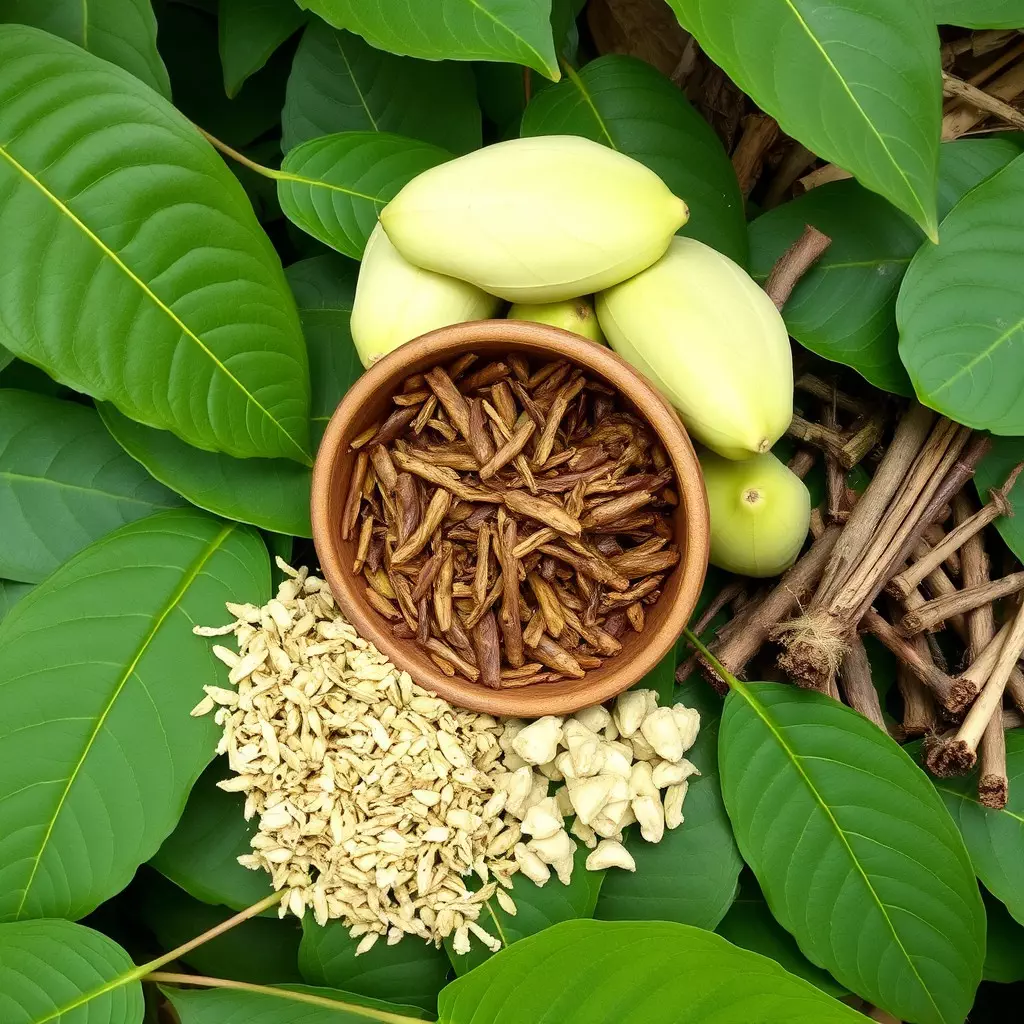Recent studies suggest that kratom, specifically the compounds mitragynine and 7-hydroxymitragynine found in the Mitragyna speciosa tree, may offer cardiovascular health benefits. There is anecdotal support for its role in enhancing heart health, potentially improving circulation and offering protection against high blood pressure and hypertension. However, it's important to note that the FDA has issued cautionary statements about kratom due to unverified health claims. For those interested in discount kratom as a natural remedy, it is essential to use it under medical supervision and within a comprehensive cardiovascular health plan that includes diet and exercise. The potential benefits of kratom for heart health should be weighed against the risks, and users should consult with healthcare providers before incorporating it into their health routine. Safety precautions include selecting reputable vendors for product quality and safety, determining appropriate dosages to avoid adverse effects or interactions with other medications, and considering individual responses to kratom, which can vary. It's also crucial to avoid kratom if pregnant, breastfeeding, under 18 years old, or suffering from certain medical conditions. A responsible and well-informed approach to using discount kratom can help individuals make an informed decision regarding its potential role in supporting cardiovascular health.
Explore the emerging relationship between kratom, a botanical derivative, and its potential impact on cardiovascular health. This article delves into how Discount Kratom, specifically, may contribute to enhanced well-being of the heart through its active alkaloids. We’ll discuss the scientific aspects of these compounds, their effects on heart function, and provide a safe and responsible framework for incorporating kratom into a cardiovascular health regimen. Understanding the nuances of kratom’s role in heart health is crucial for those interested in natural approaches to maintaining a healthy cardiovascular system.
- Unveiling the Potential of Discount Kratom for Enhanced Cardiovascular Well-being
- Kratom's Active Alkaloids and Their Role in Heart Health
- Navigating Safety and Dosage: A Responsible Approach to Kratom for Cardio Support
Unveiling the Potential of Discount Kratom for Enhanced Cardiovascular Well-being

Recent research has begun to shed light on the potential cardiovascular benefits associated with the use of kratom, a natural product derived from the leaves of the Mitragyna speciosa tree. While traditional medicine and scientific studies continue to explore this plant’s effects, anecdotal evidence and user experiences have highlighted its promising role in supporting heart health. Discount kratom, accessible to a broader demographic due to its cost-effective nature, has emerged as a subject of interest for those seeking natural alternatives to enhance their cardiovascular well-being. Proponents argue that certain strains of kratom may help regulate blood pressure and improve circulation, potentially reducing the risk of hypertension and related cardiovascular conditions. The alkaloids found within kratom leaves, such as mitragynine and 7-hydroxymitragynine, are believed to play a role in these beneficial effects.
It’s important for potential users to approach the use of discount kratom with caution, as it is not without potential side effects and interactions with other medications. The FDA has issued warnings regarding the unsubstantiated health claims associated with kratom products. Nevertheless, within a regulated environment and under the guidance of a healthcare professional, discount kratom could be a valuable addition to a holistic cardiovascular health regimen. Users should consider consulting with a medical expert to understand the potential risks and benefits, ensuring that any supplementation is done in conjunction with a balanced lifestyle, including a nutritious diet and regular exercise. This balanced approach can further support cardiovascular health and overall well-being.
Kratom's Active Alkaloids and Their Role in Heart Health

Kratom, a tropical evergreen tree native to Southeast Asia, has garnered attention for its potential benefits on cardiovascular health. This is primarily attributed to its active alkaloids, mitragynine and 7-hydroxymitragynine, which are thought to play a role in supporting heart wellness. Mitragynine, the primary alkaloid found in kratom, may influence vascular function by promoting vasodilation, which can improve blood flow and potentially lower blood pressure. Concurrently, 7-hydroxymitragynine has been studied for its anti-inflammatory properties that could benefit individuals with conditions characterized by inflammation affecting the cardiovascular system.
The cardioprotective effects of kratom’s alkaloids are still under investigation, but preliminary studies suggest they may contribute to a healthier heart by promoting a balanced mood and reducing stress, which are significant factors in maintaining heart health. Additionally, some users report that discount kratom strains aid in reducing the symptoms of hypertension and improving overall cardiovascular function. However, it is crucial for individuals to consult healthcare professionals before incorporating kratom into their regimen, as the balance between potential benefits and potential risks must be carefully considered. This is particularly important given the complexity of cardiovascular health issues and individual differences in response to kratom.
Navigating Safety and Dosage: A Responsible Approach to Kratom for Cardio Support

When considering the use of kratom for cardiovascular health, it’s crucial to approach its application with caution and informed guidance. Kratom, a plant from Southeast Asia, has been traditionally used for its stimulant and sedative effects, and more recently, some users have reported its benefits on heart health. Navigating safety involves understanding the proper dosage, as incorrect usage can lead to adverse effects or interactions with other medications. Discount kratom products are available in various forms such as capsules, powder, and extracts, which can make dosing easier to manage; however, consumers must exercise due diligence when selecting a product and vendor to ensure they receive a high-quality and safe product.
Dosage for kratom varies widely between individuals and is influenced by factors like body weight, tolerance, and the specific strain used. It’s important to start with a low dose to gauge one’s response before gradually increasing, if needed. The FDA has not approved kratom as a treatment for any medical condition, including cardiovascular issues, and users should consult with healthcare professionals before incorporating kratom into their regimen. Safety precautions include avoiding kratom altogether if pregnant or breastfeeding, suffering from certain medical conditions, on medication that can interact with kratom, or under the age of 18. By adhering to a responsible approach and staying well-informed about the potential benefits and risks, individuals can explore the use of discount kratom for cardiovascular support in a manner that prioritizes their health and safety.
In conclusion, the exploration into the potential benefits of discount Kratom for improved cardiovascular health presents a compelling case for further investigation. The active alkaloids found within Kratom, such as mitragynine and 7-hydroxymitragynine, have been linked to positive effects on heart health. However, it is imperative to approach its use with caution, ensuring proper dosage and safety measures are observed to maximize benefits while minimizing risks. As the research continues to evolve, the role of discount Kratom in supporting cardiovascular well-being remains an area of intrigue and potential. Prudent consumers and health enthusiasts alike should stay informed and consider consulting healthcare professionals when integrating Kratom into their wellness regimen for heart health.






